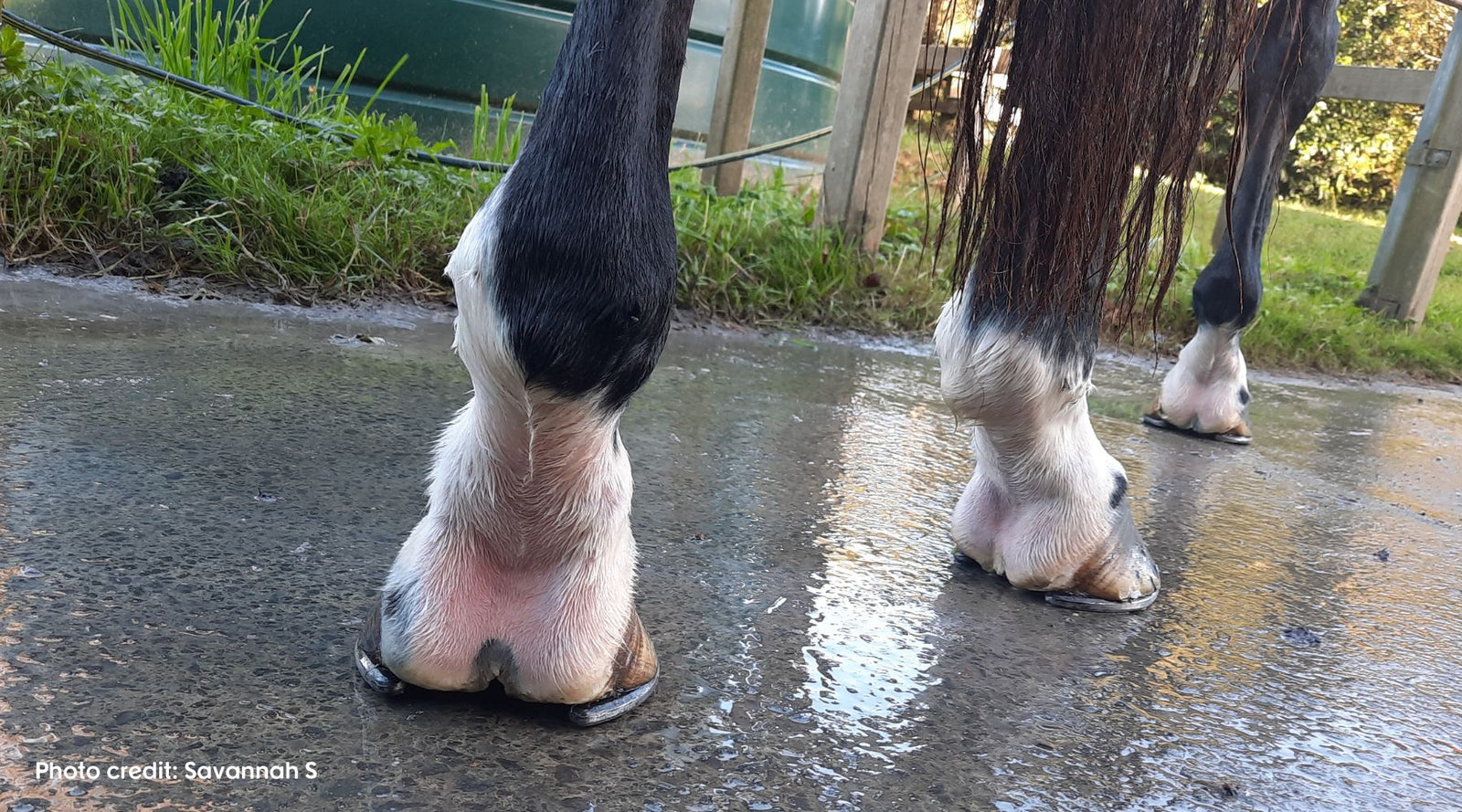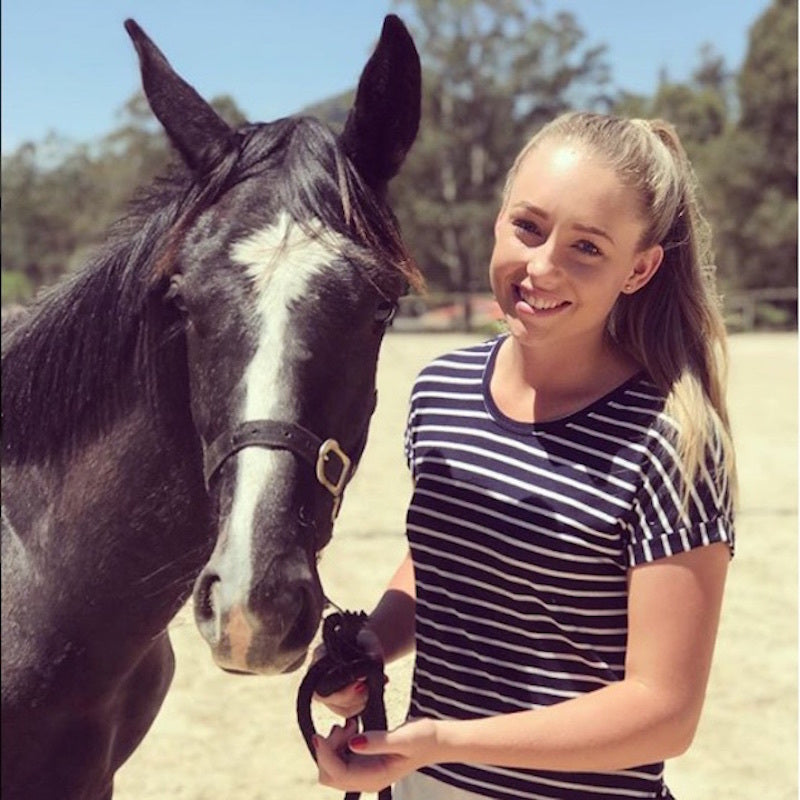Horse & Rider
MUD FEVER, GREASY HEEL, PASTERN DERMATITIS, RAIN SCALD – AREN’T THESE THE SAME THING?
by Fiona Lane August 19, 2025

Greasy Heel, also known as Mud Fever, Pastern Dermatitis, Rain Scald or Mud Rash, is one of the most common skin conditions in horses. Caused by bacteria that thrive in wet, muddy conditions, it often leads to painful scabs, sores and inflammation that can be tricky to manage. Understanding the causes, symptoms, and best prevention strategies is key to protecting your horse’s skin and overall wellbeing.
Key Highlights
- Horses with greasy heel often develop painful, oozy scabs and skin irritation, especially during wet weather.
- The condition is caused by the bacteria Dermatophilus congolensis, which enters through cuts or softened skin.
- Constant exposure to mud and damp conditions increases the risk of infection taking hold.
- If unmanaged, greasy heel can worsen, leading to swelling, lameness, and ongoing discomfort for your horse.
- Preventative care includes keeping legs as dry as possible, monitoring skin for cuts or abrasions, and starting weekly support doses before wet weather arrives.
- Hippo Health’s Mud & Rain remedy is a natural oral option designed to help support horses prone to greasy heel and rain scald, offering stress-free, mess-free management.
By recognising the signs of greasy heel early and putting a preventative plan in place, you can reduce the risks and keep your horse more comfortable. In this blog, we look at the causes, symptoms, and practical management strategies for Mud Fever and Rain Scald, and explain how our Mud & Rain remedy can support your horse through the wet season.
Understanding Greasy Heel in horses
While this condition has many names, the cause and the symptoms are the same. The bacteria that cause the condition live in wet and muddy conditions and are always present, but only cause a problem if they get into an animal’s body - usually through broken skin, or cuts, cracks and abrasions due to the skin softening when constantly damp.
Once inside, the bacteria cause symptoms such as inflammation, oozy scabby sores and in severe cases swelling and lameness. For more on managing this condition, read our guide to preventing and managing Mud Fever / Greasy Heel and rain scald.
Natural support for Greasy Heel
Our Mud & Rain remedy is a professionally formulated, oral remedy designed to support a normal immune response to greasy heel in horses. Unlike traditional methods that focus on managing the external symptoms, our remedy supports healing from the inside out, without the need for painful and messy treatments.
No mess, no stress, no sting
Dosing with our natural Greasy Heel remedy is straightforward and stress-free. Our pump bottle format can be used to give remedy directly into the mouth, or onto a treat, while our jerry can format is for adding to feed or into the water trough for dosing multiple animals at the same time. To find out more, read our guide to oral dosing using our remedies or find out which format is right for your horse and the way you like to approach their care.
Greasy Heel prevention and management
For horses prone to these conditions, we recommend starting with a preventative dose once a week before the onset of wet weather as regular use can help to maintain healthy skin, making it harder for bacteria to find a way in. At the first sign of any trouble, increase the dosing frequency for 7-10 days to manage the emerging symptoms.
Our remedy offers several key benefits:
No Sting, No Mess, No Stress:
Avoid the discomfort and risk associated with traditional treatments.
Comprehensive Support:
Effective against Greasy Heel, Mud Fever and Rain Scald.
Cost-Effective:
Our jerry can format enables trough dosing to provide cover for multiple horses drinking from the same water source.
Customer testimonials
Many of our customers have experienced significant improvements in their horse's Greasy Heel, Mud Fever and Rain Scald symptoms using our Mud & Rain remedy. They’ve shared before-and-after photos showcasing the healing process, demonstrating the effectiveness of our product. You can see their photos and read their testimonials here.
We think our Mud & Rain remedy is a versatile, easy-to-use solution for managing Greasy Heel, Mud Fever and Rain Scald. By supporting a healthy immune response and promoting healing from the inside out, it provides a stress-free alternative to traditional treatments. Head to our product page to find out more and read hundreds of customer reviews!
General Disclaimer: Always follow dosing instructions. Our remedies are formulated to support the natural immune system of horses, pets, livestock, and people. We do not claim to treat, medicate, or cure any health conditions. If you are worried an animal may be in pain or suffering, please contact your veterinarian.




